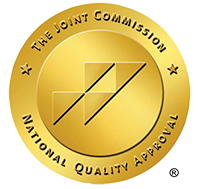San Diego’s Premier Treatment Center
At Wings Recovery, we know that choosing the right mental health treatment center can be daunting. There are so many options, and not all of them are reputable or a good fit for you as an individual. We also know first-hand the magic that happens when you make the choice to enter a safe, healing environment and share your story with others, including both highly trained therapists and your peers in recovery. The healing process begins with you, and it ripples out to your family, your community, and the world.
Whether you are struggling with trauma and PTSD, anxiety, depression, or broken relationships, we offer you a safe, caring refuge where you can begin the healing process and start to create the life you dream of.
A Team That Cares
Wings was founded by a psychologist and a marriage and family therapist, both bringing extensive expertise in the mental health treatment field. Through our years of experience helping patients through heart-wrenching issues to open up and heal, our staff understands first-hand the devastating effects that trauma and mental illness can have on individual lives and the lives of the people who love them.
All of our therapists have at minimum a master’s degree in a mental health field and are licensed or registered with the state of California. And, unlike many other programs, all of our therapists receive training in the special skills needed to effectively treat trauma and trauma-based disorders.
Our Approach to Mental Health & Trauma Treatment
Our programs are designed to integrate both individual and group therapy, including a wide range of evidence-based and holistic therapies, such as mindfulness and expressive arts. We also specialize in trauma-focused therapies like EMDR and IFS, because we know that trauma often lies at the root of many mental health conditions.
We take this unique approach because, in order to truly take root, healing must include many different empirically supported treatments and an emphasis on individual therapy. Click here to learn more about our unique treatment approach.
Joint Commission Approved

We are proud to have earned the seal of approval from the Joint Commission, the highest level of accreditation in the treatment field. Our Joint Commission approval is our assurance to you that we provide the highest level of holistic, evidence-based treatment in San Diego.
Take the First Step on Your Journey to Healing
Living with trauma or another mental health disorder is hard, but your choice to begin treatment doesn’t have to be. Begin your healing journey by calling our wonderfully caring, respectful, and always confidential admissions staff today at 1.888.790.9377.
